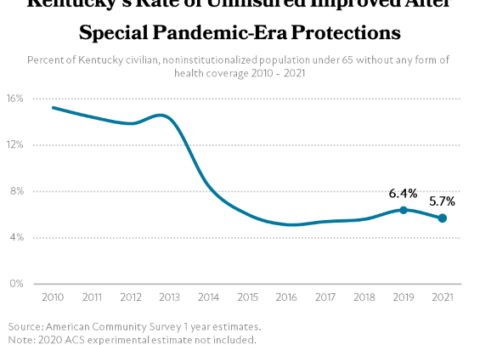Kentucky’s experience in the Great Recession shows federal aid to states is crucial to limiting damage to the economy during a downturn. But unless aid is large enough and lasts long enough – neither of which were true in the Great Recession – the resulting state cuts to critical services will put a preventable drag on the recovery. These lessons must be applied to the COVID-19 economic crisis, according to a new report by the Kentucky Center for Economic Policy.
“When the Great Recession hit, federal aid to states like Kentucky was essential to preventing the recession from turning into a depression,” KCEP Executive Director and author of the report Jason Bailey said. “But in part because aid was not adequately scaled to the depth of the recession and ended before recovery was reached, Kentucky’s economy and budget continued to see harmful cuts for an entire decade.”
Early indicators are that the COVID-19 recession could be even worse than the Great Recession. Nearly 500,000 Kentuckians have filed unemployment claims, or 24% of the state’s workforce. Those conditions are causing state tax receipts to crater even as costs go up for programs like Medicaid. And the crisis is unlikely to end soon: the Congressional Budget Office released a new report projecting the U.S. unemployment rate could still be a very painful 10.1% in 2021.
“Unlike the federal government, states have balanced budget requirements, limiting their ability to address falling revenues amid spiking costs in recessions,” Bailey said. “Without adequate aid, states make cuts to vital services ranging from schools to health to infrastructure that drag economies down further.”
The federal government has provided some relief to states, but not nearly at the scale of the crisis we are now facing, the report notes. Experts and the National Governors Association estimate states need at least $500 billion in assistance, or over 3 times what Congress has provided so far.
“Recent comments from Senator McConnell that states should just declare bankruptcy ignore how a lack of state aid will harm the economy as a whole,” Bailey said. “More federal relief is not charity — it’s about actually having a functioning economy to go back to once the health crisis has finally ended.”

